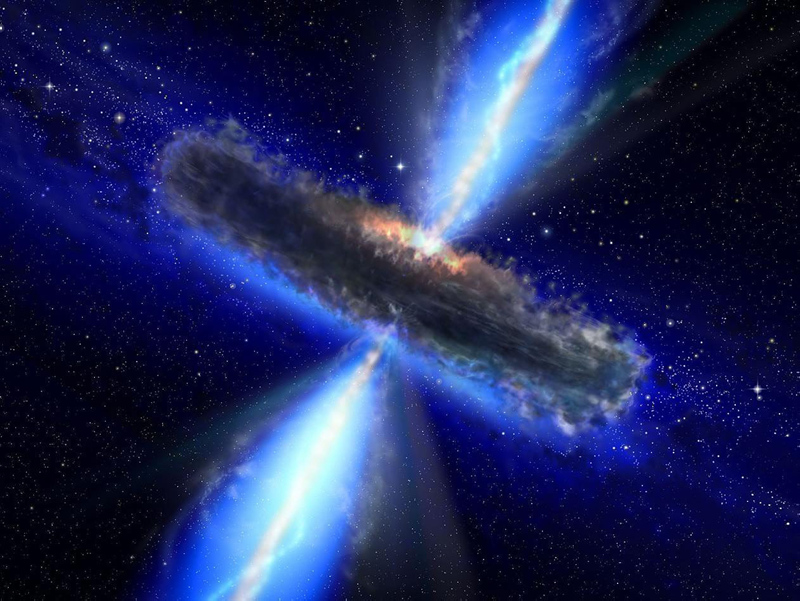Astronomers have discovered the fastest-growing black hole of the last nine billion years, the Australian National University (ANU) said on Wednesday.
The black hole, with the mass of three billion suns, consumes the equivalent of one Earth every second and shines 7,000 times brighter than all the light from our own galaxy, according to the international team led by ANU astronomers that discovered it.
"Astronomers have been hunting for objects like this for more than 50 years. They have found thousands of fainter ones, but this astonishingly bright one had slipped through unnoticed," lead researcher Christopher Onken of ANU said, calling it a "very large, unexpected needle in the haystack."
"Now we want to know why this one is different - did something catastrophic happen? Perhaps two big galaxies crashed into each other, funnelling a whole lot of material onto the black hole to feed it," Onken said.

Co-author Christian Wolf called the record-setting black hole an "outlier."
"We are fairly confident this record will not be broken. We have essentially run out of sky where objects like this could be hiding," he said.
According to the team, the black hole, which has a visual magnitude of 14.5, is 500 times larger than the black hole in our Galaxy, meaning it could be easily seen by anyone with a decent telescope set up in a dark area.
"The orbits of the planets in our Solar System would all fit inside its event horizon - the black hole's boundary from which nothing can escape," co-author Samuel Lai said.
The findings have been published on arXiv.org and submitted to Publications of the Astronomical Society of Australia.